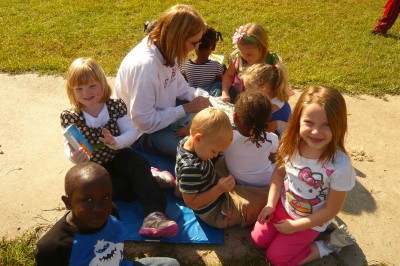Two Head Start reports find problems and some hope
The benefits children reap from Head Start, the preschool program for low-income families, disappear almost completely by third grade. While social support for children in the program is high, academic supports are low. Nearly all of children in the program live near the poverty line, more than half do not live with their fathers, and a third have a parent who is unemployed. These are the findings from two separate reports released Friday by the Administration for Children and Families (ACF), the federal agency that oversees the Head Start program.
On their face, the pair of reports seem to paint a depressing portrait of a program meant to help the most vulnerable children in the country. But amid the bad news, the researchers who compiled the reports –independent contractorscommissioned by ACF – also found a few glimmers of hope.
One of the studies, by the nonprofit Mathematica Policy Research, found that parents of children enrolled in Head Start became more engaged in teaching their children at home: They increased (slightly) the frequency that they told their children stories, played games, did arts and crafts and went to the library. The report also found that children in Head Start made significant academic progress during the year on

